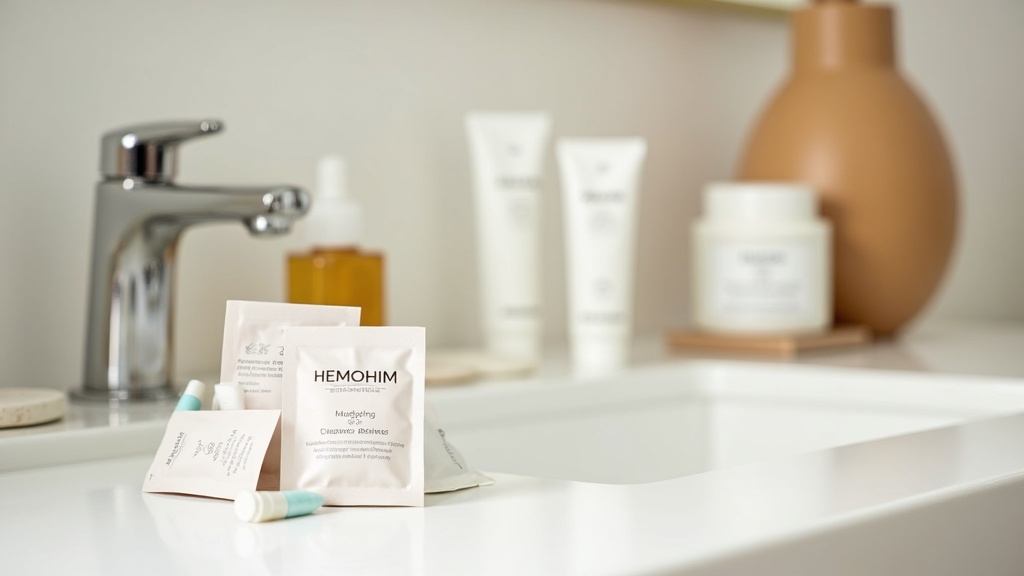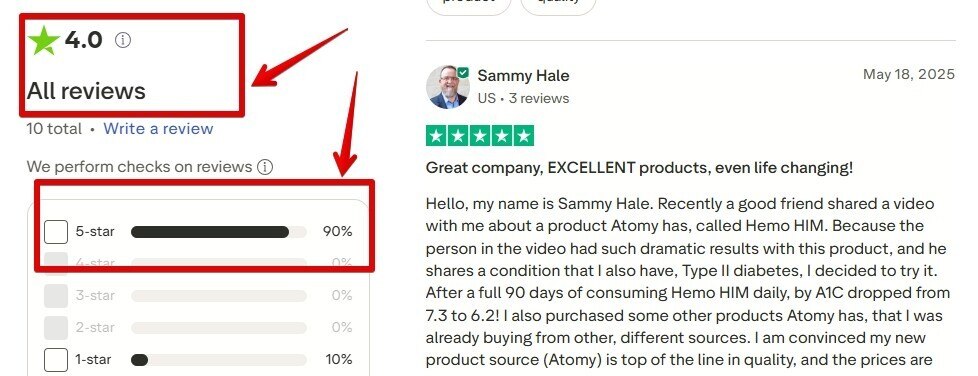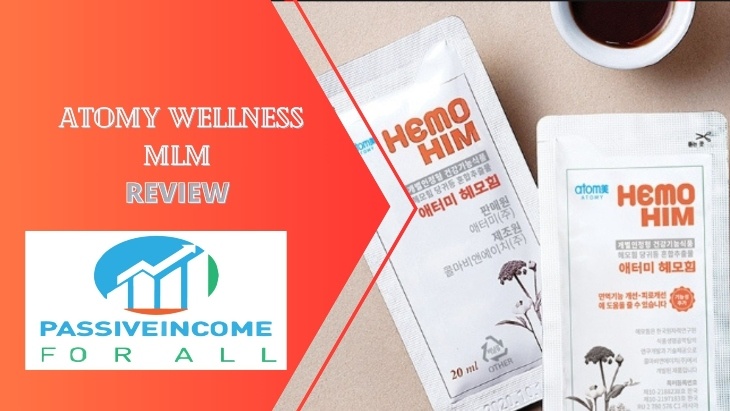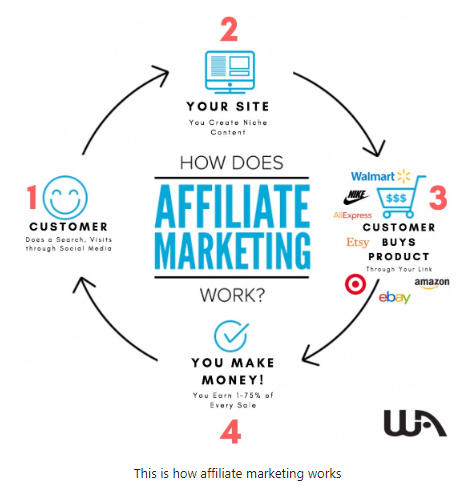If you browse wellness groups or side hustle forums, you’ll probably see the name Atomy pop up more than a few times.
Atomy is a Korean-born wellness and personal care brand that’s made huge waves in the MLM (multilevel marketing) world, not just in Asia, but all around the globe.
Their supplements, skincare, and home products are everywhere. If you haven’t already been invited to an Atomy Zoom call, it’s only a matter of time.
But with that kind of explosive growth comes questions. Is Atomy Wellness a real shot at income, or just another overhyped MLM promising a luxury lifestyle to everyone who joins?
This review is for anyone curious about making money on the side, job seekers itching for remote work, stay-at-home parents hoping to supplement family income, or anyone exploring alternative income streams. I dig into the real details so you can see if Atomy Wellness is a solid opportunity or all talk.
- What Is Atomy Wellness?
- What Products Does Atomy Sell?
- How Does Atomy’s MLM Business Work?
- Real User Experiences (Pros & Cons)
- Red Flags & Criticism
- Is Atomy a Pyramid Scheme or Legit Opportunity?
- Who Is Atomy Best For (and Who Should Avoid It)?
- Atomy vs Affiliate Marketing – A Better Alternative?
- Final Verdict – Should You Join Atomy Wellness?
One Step Ahead To Escape Your 9-5.
100% FREE
Unlock The Done For You System That Creates A Fully Automated Income!
What Is Atomy Wellness?
Atomy got its start in South Korea back in 2009, taking inspiration from the popularity of Korean beauty and wellness products.

The company calls itself a “masstige” brand. The idea is fancy ingredients, science-backed benefits, and premium packaging, but with price tags that regular people can swing.
What makes Atomy stand out in the crowded MLM space is the company’s international reach.
They’re not just big in Korea or Asia. They’ve cracked the US, Canada, Australia, the UK, and beyond, with millions of members worldwide.
The catalog is pretty broad, with everything from the flagship Hemohim health supplement to toothpaste, dish soap, sunscreen, and their famous Korean skincare lines.
Atomy runs as a product-based MLM. Distributors (they call them “members”) join for free and can earn commissions by selling products and building a team beneath them.
The catch is in something called the Point Value (PV) system—a metric you accumulate to qualify for bonuses, commissions, and higher ranks in Atomy’s structure. We’ll get into how all that works in a bit.
The company makes some bold claims: ultra-high manufacturing standards (partnering with cosmetic giant Kolmar Korea and government-backed KAERI), power ingredients like angelica root and peony in Hemohim, and price points much lower than comparable department store brands.
Sound too good to be true? Time for a closer look.
What Products Does Atomy Sell?
Atomy’s product catalog reads like a cross between a Kbeauty boutique and a health food store, with some home essentials mixed in.

Here’s a quick overview of the top-selling categories:
- Hemohim. The flagship health supplement, rich in herbs such as angelica, cnidium, and peony roots, promises to enhance immune function and overall energy levels. This one comes with its own set of controversies, which I’ll touch on.
- Skincare Sets. Atomy is renowned for its multi-step Korean skincare routines, featuring bestsellers such as the Atomy Absolute Set, Evening Care 4 Set, and The Fame Set. Serums, cleansers, eye creams. Basically, everything for that glass skin look.
- Personal Care. Toothpaste with green tea, propolis mouthwash, shampoos, and body wash. All with a wellness slant and Korean flair.
- Home & Lifestyle. Dish detergent, laundry detergent, hand soap, and even kitchen sponges.
Atomy’s products generally come with claims of advanced technology, gentle ingredients, and “synergy science” (their term for combining natural ingredients with biotech manufacturing).
They point to science partnerships with Kolmar BNH (which also does contract cosmetics for lots of big global brands) and KAERI, Korea’s government atomic energy research agency. While that sounds impressive, most products are based on familiar ingredients—think herbal extracts, niacinamide, peptides, and probiotics.
Are the products any good?
Plenty of fans swear by them. Hemohim in particular has a cult following in Korea and among natural health enthusiasts, although it’s far pricier than a typical vitamin supplement. The skincare gets solid reviews for being gentle and giving that “Kbeauty glow,” especially for people new to multistep routines.
Still, the reviews aren’t all eye-catching.
Some users complain about lackluster results compared to department store brands, and a few have raised concerns about unproven health claims, especially related to Hemohim.
Pricing is mixed.
While you can find a few items that seem affordable, some of Atomy’s kits (like the Absolute skincare set) are expensive, even with member pricing. When you factor in shipping, it might not always beat the deals you’d find at Ulta or Amazon.
For anyone sensitive to strong scents or with allergies, it’s smart to read the ingredient lists or order sample packs. And with any supplement or health product, it’s always a good idea to loop in your doctor before making it a daily thing.
Recommended Reading: B-Epic MLM Review – Is This Health & Wellness Opportunity Worth It In 2025?
How Does Atomy’s MLM Business Work?
Atomy pitches itself as a zero-pressure, product-first MLM—unlike many others in the space that require monthly autoship or demand a big starter kit buy-in.
Here’s how it really works:
- Free to Join: Anyone can sign up as a member, with no upfront fee or forced starter pack. You stay active by buying just one item per year. Pretty low risk if you’re just a casual user.
- Binary Team System: Atomy uses a classic binary structure. That means you build two teams beneath you (“legs”), a left and a right. Your goal: stack both sides up with people buying, to earn commissions as everyone below you purchases products.
- Point Value (PV) System: Every product has a PV attached—kind of like reward points, but they also determine your rank, compensation eligibility, and bonuses. Your PV comes from a combination of your own purchases and those of your downline.
- Ranks & Promotions: You move through ranks from Sales Rep up to Imperial Master, racking up perks as your team grows and your group PV balloons. The biggest ranks come with extravagant perks, travel, cars, and even big cash prizes for top earners.
- Commissions: You only earn on your group’s volume if both “legs” are balanced. Heavy on one side, light on the other? You miss out on some bonuses. Most commissions are based on your entire group’s PV, not just your direct retail sales.
It sounds simple, but stacking your “legs” and balancing volume takes serious recruiting or a ton of product sales. The system is designed so that big teams win, while solo sellers or people who just love the products mostly get discounts and small cashback bonuses.

Bonuses in Atomy include match bonuses, mastership bonuses (moving up ranks), and sometimes lifestyle rewards like trips or shopping sprees for top performers. The more your team sells (and the more they recruit), the more potential income is unlocked. Without team-building, commissions are usually tiny.
Real User Experiences (Pros & Cons)
Talking to both fans and critics, I’ve pieced together some honest pros and cons:
What’s great about Atomy:
- Almost anyone can sign up. There’s no expensive starter pack to get locked into, and no monthly spend to stay in the game.
- Korean-made products tend to be high quality, especially in skincare and personal care categories. The Korean “masstige” branding pulls a lot of people in.
- The international Atomy community is massive. If you like online events, training, or connecting with team members from around the world, you’ll find that here.
- No forced autoship. Unlike many MLMs, you’re not pressured to stockpile products or meet quotas every month, which can save you money and stress.
The drawbacks:
- Making real income is rare unless you’re a super recruiter or highly active team builder. Most members say the bulk of the commission comes only after recruiting lots of new buyers.
- Many report financial losses from buying more products than they actually need. That PV system makes it tempting to “stock up” for a higher status.
- The health claims around Hemohim have been flagged as overblown or unsupported by some skeptics and watchdog groups. Not everyone sees or feels a real difference.
If you’re going in for discounts and a sense of community, the low barrier to entry is appealing. But if you’re dreaming of real income, reviews make it clear: team building is where the actual money is, and it’s much harder than flashy webinars make it seem.
Red Flags & Criticism
Atomy has its share of vocal supporters, but it’s also come under fire, especially online.

Here are some of the main red flags worth knowing:
- A large chunk of Atomy’s sales comes from its own members rather than regular retail customers. When an MLM’s main “customers” are its team, that risks being labeled a pyramid scheme by regulators.
- The company doesn’t release clear or up-to-date income disclosure statements. It’s hard to tell how many people make decent money, and what average earnings really are. Never a great sign for income transparency.
- Marketing materials often play up testimonies about financial freedom, rags-to-riches stories, and even health miracles in ways that can seem exaggerated or too good to be true.
- Some wellness watchdogs and review blogs flag the lack of consistent third-party testing for supplements like Hemohim. Most public studies are industry-funded.
There have even been isolated complaints with local consumer bureaus, especially about misleading income claims or pushy team leaders.
None of this means Atomy is formally operating fraudulently, but it’s smart to keep your guard up, and never invest more than you can afford to lose.
Is Atomy a Pyramid Scheme or Legit Opportunity?
The question I hear most: Is Atomy really just a pyramid scheme? Here’s my honest take.
By legal definition, a pyramid scheme pays out for recruiting without real products being sold. Atomy does have real, physical products and does not charge a joining fee, so by MLM laws in most countries, it’s classified as a legal direct sales company.
But reality is a bit more complicated. In practice, much of the money is made through recruitment and encouraging team members to keep buying higher volumes (to hit bonuses and status milestones), rather than solely off retail sales to end customers. While you can earn from selling to nonmembers, the PV system is designed to drive team building. The more people you recruit who buy the product, the more group commissions you unlock.
So, Atomy walks a thin legal line. The model is technically legal, but it’s heavily dependent on continuous recruitment and internal consumption. Surveys and blog reviews show that only a small fraction of members ever make serious income, while the company makes big money from product sales to its own member base. That’s a recurring problem across the MLM sector, not just Atomy.
Wrapping up: While top earners flaunt big checks and fancy perks, the vast majority of Atomy members are bargain shoppers or part-timers who rarely recoup their own spending. That doesn’t make it a scam in the legal sense, but it’s far from automatic riches for most people.
Who Is Atomy Best For (and Who Should Avoid It)?
I see Atomy being a pretty good fit for a few types of people:
- Loyal product fans who genuinely love Atomy skincare, supplements, or home care and want regular member discounts.
- Anyone who’s already deep into Kbeauty or Korean wellness trends and wants the legit stuff, with some savings for buying direct.
But if any of these describe you, Atomy’s probably not the move:
- People looking for real, passive income without doing much recruiting or sales. Atomy’s earnings are mostly active. More effort equals more PV and commissions (for the small minority who crack the code).
- Anyone on a tight monthly budget or who tends to impulsebuy. The PV system encourages buying more to rank up, which can quickly lead to overspending.
If you’re mostly after product discounts or want to experiment with Korean skincare, signing up as a member for the savings can make sense. But chasing the dream of financial freedom through Atomy deserves a heavy dose of realism. It pays to step back and think about your own goals and tolerance for recruiting, especially if you’re trying to avoid stress or extra expenses.
Atomy vs Affiliate Marketing – A Better Alternative?
MLMs like Atomy aren’t the only way to monetize your love of health, wellness, or beauty products.
I’ve spent years in affiliate marketing and always encourage comparing the two models before jumping in.
With affiliate marketing, you never have to recruit or bug friends, and you earn from real shoppers online. You can pick from millions of products, from Amazon to Sephora to niche wellness brands, and there’s no pressure to hit team targets or buy more product for status.
If you’re looking for a step-by-step system that teaches you how to build income with affiliate marketing, check out my free affiliate marketing starter course here. I walk you through the same strategies that took me from zero to consistent online income. No inventory, no hard selling, and no team-building headaches.
Final Verdict – Should You Join Atomy Wellness?
Atomy brings some next-level cool things to the MLM table.
Affordable Korean-made products, low startup barriers, and a global support network. If you’re a hardcore Kbeauty devotee or love the community aspect (and don’t mind the meetings), signing up for member prices can be a solid move.
But if your main goal is generating real income, the reality is a lot less sparkly. Most Atomy members don’t make back their own product spending. Serious earning pretty much always comes down to aggressive team building and hitting group targets. The binary structure and PV system are tricky and favor experienced recruiters, not casual product fans.
If you want to build a sustainable, passive online business, affiliate marketing or direct ecommerce (where you control the customers and content) usually offers a better path. You avoid the pyramid-like structure, get paid for real customer sales, and keep more flexibility in what you promote and how you scale up.
Are you, or is someone you know, currently involved in Atomy? I’d love to hear your honest take. Drop a comment below with your experience, both good and bad!
If you’re ready to explore real online income without team-building or inventory pressure, grab my totally free affiliate marketing course here or check out my top pick for affiliate programs. I break down the models, expected time investment, and even show example sites so you can see what’s working now.
Happy hustling and thanks for reading!


